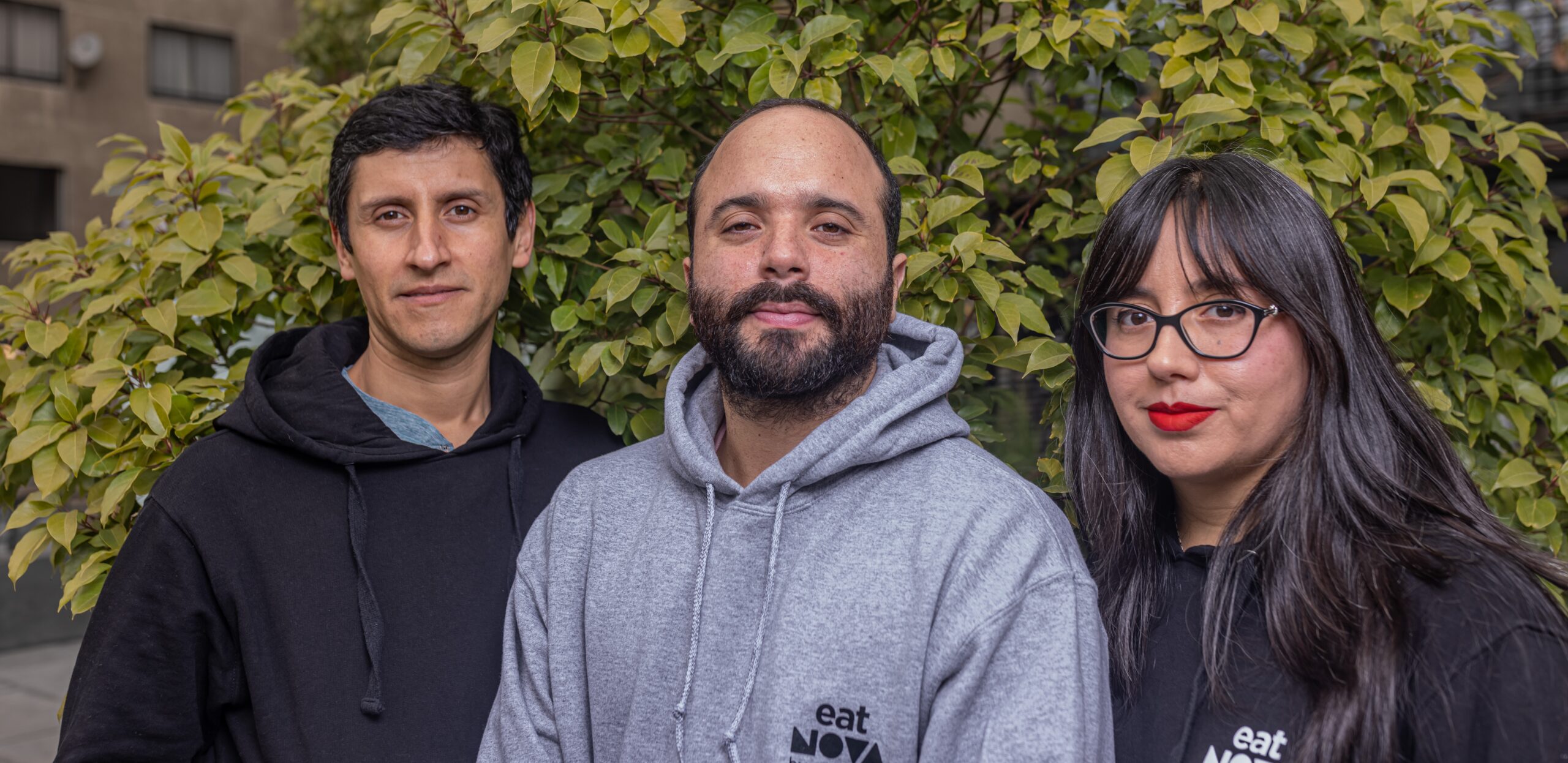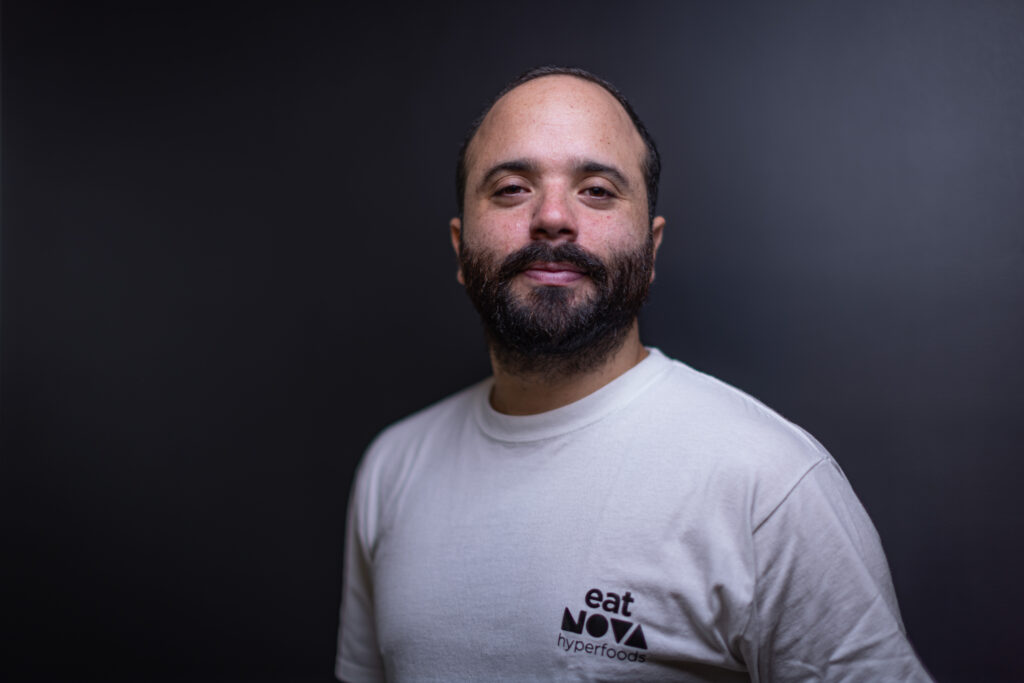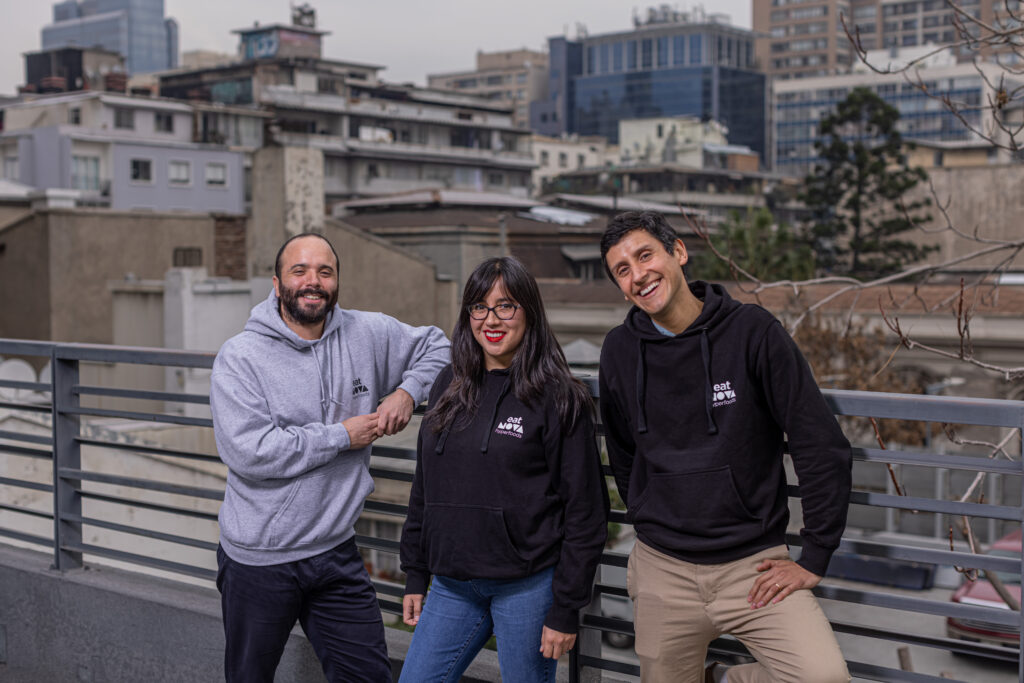Meet Cristóbal Hurtado from EatNova Hyperfood
Q: Can you introduce yourself and your startup?
A: I’m Cristóbal Hurtado, the CEO of EatNova Hyperfood. Our startup is primarily focused on creating what we call ‘hyperfoods’ – functional foods aimed at enhancing people’s health and well-being. These hyperfoods are designed to address specific health concerns, particularly chronic diseases, which are a major cause of death globally.
Our approach is unique in that we only use active ingredients derived from natural sources, which have been validated through clinical trials for their health benefits. By analyzing scientific papers and journals, we identify these active principles and incorporate them into various food matrices. This method allows us to produce foods that are not only effective in treating diseases but are also enjoyable to eat.
The goal is to combat the rising tide of non-communicable diseases, which currently account for 74% of all deaths worldwide. With our hyperfoods, we aim to offer a proactive solution to these health challenges by providing foods with effective dosages backed by clinical research, ensuring regular consumption translates into tangible health benefits.
Q: What inspired the creation of your company?
A: Personal experience was a key catalyst in the formation of our company. Among our three founders is Bethzabeth Tapia, a biochemist with a deep passion for researching scientific literature. Her journey with EatNova Hyperfood began during a personal struggle with depression. While receiving medical treatment, Bethzabeth sought natural alternatives to complement her therapy. This exploration led her to discover a wealth of information on treating various diseases naturally. Her findings were eye-opening – there was a significant amount of scientific data supporting natural treatments for a range of health issues.
This realization was the spark that ignited the idea behind our startup. We saw the potential to leverage this knowledge, combining it with food science to create functional foods that could address health problems in a more natural, accessible way. This personal journey of seeking holistic treatment options was really the birthplace of EatNova Hyperfood.
Why Start-Up Chile?
Q: What led to your decision to join the Start-Up Chile accelerator program?
A: Our decision to join Start-Up Chile was driven by the need to develop a crucial component of our business: an MVP (Minimum Viable Product) of an artificial intelligence technology. This technology was designed to play a pivotal role in our process – it helps in identifying various active principles from scientific papers and integrates them effectively into food matrices that are both health-beneficial and palatable. The primary goal during our time in the Start-Up Chile program was to create and refine this AI technology, tailoring it specifically for the production of hyperfoods.
In Chile, Start-Up Chile is renowned as a top-tier accelerator, known for its support and resources for burgeoning startups. Once we had progressed beyond the conceptual stage, with a solid plan and strategy in place, Start-Up Chile became our first choice for an accelerator program. The program seemed like the perfect fit for turning our innovative idea into a tangible reality, providing us with the environment and support needed to develop our AI technology and bring our vision of hyperfoods closer to fruition.
Start-Up Chile Application Process
Q: How was the Start-Up Chile application process?
A: The application process for Start-Up Chile is relatively brief, especially when compared to other subsidy programs offered by the Chilean government. What sets Start-Up Chile apart is its focus. Unlike other programs that might emphasize the theoretical aspects or financial growth of a startup, Start-Up Chile delves more into the personal motivations and the passion behind the idea.
The process, in my experience, is more straightforward and accessible. However, there is a distinctive requirement – a letter of recommendation. This letter was somewhat of a hurdle for us because we were at a very early stage as a company.
Despite this, I found the overall application process to be easier and more personal. It’s not just about presenting a business idea; it’s about conveying the passion and the unique vision behind it. This approach really resonates with what Start-Up Chile is looking for in its participants – innovators who are driven by a deeper purpose and are ready to make a significant impact.
Q: What aspects of your company do you think were pivotal in securing a place in the Start-Up Chile program?
A: I believe the uniqueness and innovative nature of our proposition were key factors in our acceptance into Start-Up Chile. Our project stands out because it’s quite novel – the concept of hyperfoods and the integration of AI in their development is not something commonly seen in the startup landscape. This uniqueness caught the attention of the evaluators.
However, what really turned the tide in our favor was the face-to-face interview. There’s a significant difference in how a concept comes across on paper versus in a personal conversation. During this interview, we had the opportunity to convey our passion and explain our vision more vividly. It allowed us to showcase the potential impact and innovation behind what we were creating.
We felt that this interaction was a pivotal moment. It transformed our application from just another submission on paper to a compelling narrative about a groundbreaking idea. Our belief in the innovation of our proposition, coupled with our ability to communicate this effectively during the interview, I think, was what truly set us apart and led to our selection for the Start-Up Chile program.
Inside Start-Up Chile Program
Q: How was the Start-Up Chile program?
A: Our participation in Start-Up Chile coincided with the pandemic, so a majority of the activities we engaged in were virtual. This was a unique circumstance specific to that period. Typically, the program fosters a strong sense of community and interaction among participating startups. In a usual setting, Start-Up Chile is known for facilitating close relationships between startup founders and the program staff. This allows for direct mentoring and support, as well as opportunities to connect with a broader corporate network. This network isn’t just limited to ventures but extends to various enterprises that are open to discussions and collaborations. For us, the most valuable aspect was the relationships we built with other CEOs and startups within the program. These connections provided different perspectives on our work and allowed us to offer our insights to others as well. It’s a reciprocal environment where everyone contributes to and benefits from the collective knowledge and experience.
Additionally, the program offers access to an extensive pool of mentors outside the immediate staff. These mentors bring varied expertise and insights, which were crucial for our growth and development. In summary, despite the unique challenges posed by the pandemic, our experience with Start-Up Chile was immensely beneficial. The program’s focus on community, networking, and mentorship provided us with a wealth of invaluable resources and connections in advancing our startup.
Q: Did Start-Up Chile provide any funding for your startup?
A: Yes, we did receive funding from the program. Specifically, we were awarded 10 million pesos, which is roughly equivalent to $11,000.
Q: Is this funding standard for all companies in the program?
A: Start-Up Chile offers three distinct programs, each tailored to different stages of a startup’s development and offering varying levels of funding. We participated in the Start-Up Chile Build program, which provides the least funding, approximately $11,000. The next tier is the Ignite Program, offering around $27,000. Finally, the Growth Program, the highest tier, offers around $83,000.
These programs cater to startups at various stages, from early development to more advanced growth phases. Each call for applications includes these three stages, allowing startups at different development phases to apply for the program that best suits their needs. So, while every company in the program does receive funding, the amount depends on the specific program they are part of.
Achieving Milestones and Overcoming Challenges
Q: What were some significant milestones you achieved during your time in Start-Up Chile?
A: There were two major milestones for us in the program. The first was the development of our MVP (Minimum Viable Product) for our artificial intelligence technology. This was a crucial technological advancement for us and also enabled us to secure additional funding from another source in Chile.
The second milestone was related to our startup’s growth. Initially, we hadn’t focused much on growth strategies, but the program emphasized this aspect. They connected us with key players in Chile, which helped us start thinking about and implementing rapid growth strategies. This involvement in the local ecosystem turned out to be incredibly valuable for our development.
Q: Did the Start-Up Chile team provide hands-on support or act more as advisors for your MVP?
A: It was a mix of both. We had meetings with the staff for direct guidance, but we also leveraged the wider network, including corporate and mentor networks associated with the program. There were numerous experienced professionals who offered insights not just on our technology development but also on commercial aspects. This comprehensive support was instrumental in achieving our milestones, blending hands-on assistance with expert advisory.
Q: During your time in Start-Up Chile, did you encounter any internal challenges or unexpected obstacles?
A: Facing challenges is a common part of the startup journey. For us at EatNova, a significant challenge stemmed from our team’s expertise. Our three founders’ backgrounds were in commercial sectors, biochemistry, and biotechnology. We lacked a technical founder specializing in the development of artificial intelligence technology, which was crucial for our project.
To address this gap, we initially outsourced the development of our MVP to a specialized company. This decision was critical as it allowed us to proceed with the MVP development while ensuring the intellectual property remained ours through non-disclosure agreements. This approach was a strategic move to overcome our immediate technical limitations.
Q: Were there any specific issues related to the Start-Up Chile program itself?
A: No, we didn’t face any problems with the Start-Up Chile program. The challenges we encountered were internal to our team and related to our specific project needs. The program itself provided the support and resources we required without any significant issues.
Current Status and Future Goals of EatNova Hyperfood
Q: Can you update us on the current status of your company and your upcoming goals?
A: We have successfully launched a product – a cereal bar designed to alleviate stress, anxiety, and mild depression. The key ingredient in this bar is what we call psycho-biotic probiotics, a recent scientific development that has proven to enhance mental well-being.
Our next major goal is to expand our range of hyperfoods. We’re in the prototyping phase for a product aimed at helping overweight and obese individuals. Additionally, we’re developing another hyperfood targeting hypertension. These new products are in line with our mission to create functional foods that address specific health issues.
Q: Are your products available only in Latin America, or have you expanded to other markets?
A: At present, our operations are confined to Chile. However, we’re actively exploring expansion opportunities. We’ve garnered interest from the Middle East and Asia, and we’re working on establishing new distribution channels in these regions this year. Our aim is to broaden our reach and make our innovative hyperfoods accessible to a global audience.
Q: Have you experimented with different market channels and growth strategies?
A: We have been actively experimenting with various channels here in Chile. Our market may not be large, but it’s been instrumental in validating our approach. The first channel that responded positively to our products was health diet-focused stores. These outlets, which prioritize health and wellness, were quite receptive. The next successful channel was pharmacies. They also welcomed our products well.
However, we’ve encountered more challenges with large retail channels, particularly supermarkets in Chile. Supermarkets are generally more price-sensitive, and our cereal bars are positioned at a higher price point. This requires us to communicate the value and benefits of our products more effectively during commercial negotiations.
Nevertheless, when retailers understand the concept and benefits of our hyperfoods, they are quick to appreciate their value. We’re also aligning with current consumer trends, which favor functional foods that offer tangible health benefits. This alignment is key in our approach to market penetration and growth.
Final Advice for Start-Up Chile Applicants
Q: Do you have any advice for founders considering applying to Start-Up Chile?
A: My foremost advice is: go for it. Start-Up Chile is an exceptional program that welcomes startups from all around the world, not just Chile. One important aspect to note is that all program activities are conducted in English, so language barriers related to Spanish are not an issue.
Beyond the program itself, being part of Start-Up Chile allows you to immerse in Chilean culture and recognize Chile as a hub for innovation in South America. The government here is very supportive of new startups, offering various programs that can assist in your growth. While the funding provided by Start-Up Chile might seem modest, it’s often just the beginning.
There are additional government-backed programs available that don’t require equity from your company. This aspect is crucial for founders looking to grow and maintain ownership of their startups in the early stages. Not having to give up a share of your company is a significant advantage. Start-Up Chile can be the stepping stone to accessing these resources and expanding your startup’s potential in a supportive and dynamic ecosystem.



